What Do Dogs Eat?
Dogs are known as man’s best friend for a reason. They are loyal, friendly, and always happy to see their owner. But what do dogs eat? What is the best diet for them? And what should you avoid feeding your dog? In this blog post, we will answer all of those questions and more. So read on to learn everything you need to know about what dogs eat.
What Do Dogs Eat In The Wild?
Dogs are descendants of wolves, which means that their diet in the wild is mostly meat. Wolves will eat just about anything they can catch, including rabbits, rodents, birds, and fish. They will also eat carrion (dead animals) if they come across it. In the wild, dogs will consume around 20% of their body weight in food each day.
When dogs were first domesticated, they were still fed a diet that was mostly meat. However, as time went on and they became more integrated into human society, their diet began to change. Nowadays, the average dog’s diet consists of both meat and carbohydrates, with a smaller percentage of fat.
The majority of commercial dog foods are made up of meat, grains, and vegetables. The specific ingredients will vary depending on the brand, but they all contain these essential nutrients. Meat is a good source of protein, which is essential for muscle development and repair. Grains provide carbohydrates for energy, while vegetables offer vitamins and minerals. What do dogs eat in wild?
Some people believe that dogs should only eat meat, as this is what they would eat in the wild. However, there is no evidence to suggest that this is the best diet for them. In fact, most veterinarians agree that a mixed diet of meat, grains, and vegetables is the best way to ensure that your dog gets all the nutrients they need.
Of course, every dog is different and some may have specific dietary needs. For example, puppies need more calories than adult dogs, as they are growing and developing. Older dogs may need a different balance of nutrients to support their health as they age. If you are unsure about what type of food is best for your dog, speak to your veterinarian for advice.
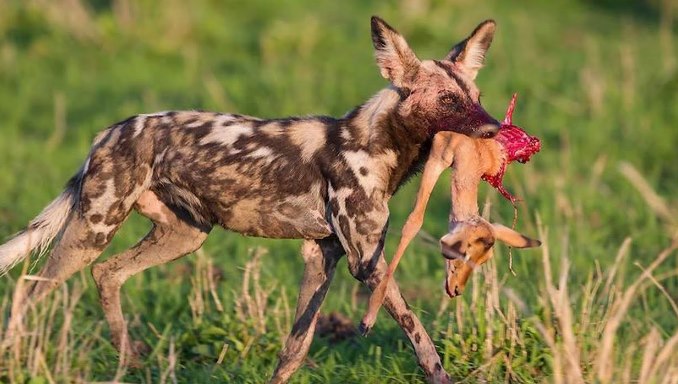
What Do Dogs Eat Now?
What do dogs eat? As we mentioned, the average dog’s diet consists of both meat and carbohydrates. This is because carbs are a good source of energy, and dogs need lots of energy to run and play. The exact ratio of meat to carbs will vary depending on the dog food brand, but it is typically around 50:50.
Most commercial dog foods also contain vegetables. This is because vegetables are a good source of vitamins and minerals, which are essential for your dog’s health. The exact type of vegetables used will vary depending on the brand, but they are usually things like carrots, peas, and sweet potatoes.
In addition to their regular food, dogs also need access to fresh water at all times. This is because they can become dehydrated very easily, especially when it is hot outside. Make sure to fill up your dog’s water bowl every day and empty it out completely before refilling it.
You may also want to give your dog the occasional treat. This is perfectly fine, as long as the treats make up no more than 10% of their daily caloric intake. Just be sure to choose healthy options, such as dog biscuits or rawhide chews.
What Should You Avoid Feeding Your Dog?
There are some things that you should avoid feeding your dog, as they can be harmful to their health. For example, chocolate is toxic to dogs and can make them very sick. Other food items to avoid include:
– Grapes: These can cause kidney failure in dogs.
– Onions: These can damage your dog’s red blood cells and cause anemia.
– Garlic: Like onions, garlic can also damage your dog’s red blood cells and cause anemia.
– Alcohol: This can cause vomiting, diarrhea, and even death in dogs.
– Xylitol: This is a sugar substitute that is toxic to dogs and can cause liver failure.
If you are ever unsure about whether or not something is safe for your dog to eat, it is best to err on the side of caution and avoid giving it to them.
When it comes to their diet, dogs need a balance of meat, carbohydrates, and vegetables. This will ensure that they get all the nutrients they need for good health. If you are unsure about what to feed your dog, speak to your veterinarian for advice.
What To Do When Your Dog Eats Chocolate
If your dog has eaten chocolate, the first thing you should do is call your veterinarian. Chocolate is poisonous to dogs and can cause them to have serious health problems. Symptoms of chocolate poisoning in dogs include vomiting, diarrhea, tremors, seizures, and death. If you think your dog has eaten chocolate, it is important to get them to the vet as soon as possible.
If you cannot get to the vet right away, there are some things you can do to help your dog. Give them plenty of water to drink and try to keep them calm. Do not give them anything else to eat or drink. And, most importantly, do not panic! Getting your dog to the vet as soon as possible is the best thing you can do for them.
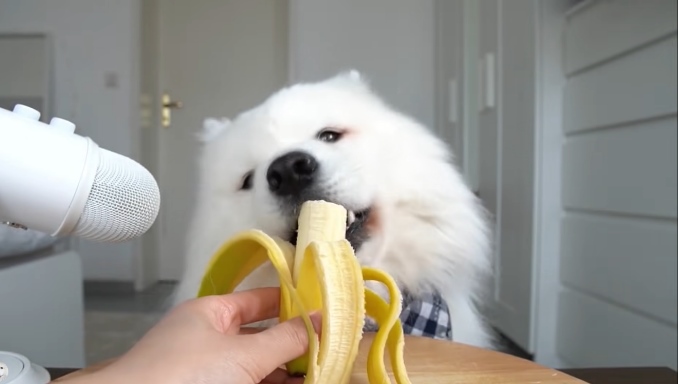
What Are The Different Types Of Dog Food?
What do dogs eat as dog food? There are three main types of dog food: dry food, wet food, and raw food. Dry food, also known as kibble, is the most common type of dog food. It is made up of small pieces of meat and vegetables that have been cooked and then dried. Dry food is easy to store and transport, which is why it is the most popular type of dog food. It is also relatively cheap, which makes it a good option for budget-conscious pet owners.
Wet food, also known as canned food, is another popular type of dog food. It is similar to dry food, but it contains a higher percentage of moisture. Wet food is often more palatable for dogs, as it has a stronger smell and flavor. It is also a good option for dogs who need to increase their water intake, such as those with kidney disease. However, wet food is more expensive than dry food and it can be difficult to store.
Raw food is the third type of dog food. As the name suggests, it is made up of raw meat, bones, and organs. Some people believe that this is the best type of food for dogs, as it closely resembles their diet in the wild. However, raw food can be dangerous if it is not prepared correctly, as it can contain harmful bacteria. It is also more expensive than both dry and wet food.
Which Type Of Dog Food Is The Best?
There is no definitive answer to this question, as every dog is different. Some dogs do well on dry food, while others prefer wet food. And some dogs may even do better on a raw food diet. The best way to figure out which type of food is best for your dog is to talk to your veterinarian and experiment with different types of food. Ultimately, the most important thing is that your dog is getting the nutrients they need to stay healthy and happy.
What Human Food Can Dogs Eat?
In adition the question what do dogs eat, do you know can dog eat human food? There are some human foods that dogs can eat, but it is important to be careful about what you feed them. Some human foods, such as chocolate and onions, are toxic to dogs and can make them very sick. Other human foods, such as fruits and vegetables, are perfectly safe for dogs to eat. And some human foods, such as meat and bones, can be a healthy part of your dog’s diet.
When it comes to human food, the best rule of thumb is to err on the side of caution. If you are unsure about whether or not something is safe for your dog to eat, it is best to avoid giving it to them. And if you do feed your dog human food, make sure to do so in moderation.
What Can I Feed My Dog If I Am On A Budget?
If you are on a budget, there are still plenty of healthy and nutritious options for your dog. You can feed them dry food, wet food, or raw food. You can also give them fruits and vegetables as treats. And you can make your own dog food at home using healthy ingredients.
No matter what your budget is, you can still give your dog the nutrition they need to stay healthy and happy.
What Are The Healthiest Dog Foods?
There are many different types of healthy dog foods on the market. Some of the healthiest options include dry food, wet food, and raw food. You can also give your dog fruits and vegetables as treats. And you can make your own dog food at home using healthy ingredients.
When it comes to choosing the healthiest dog food for your pet, it is important to consult with your veterinarian. They will be able to give you specific advice based on your dog’s individual needs.
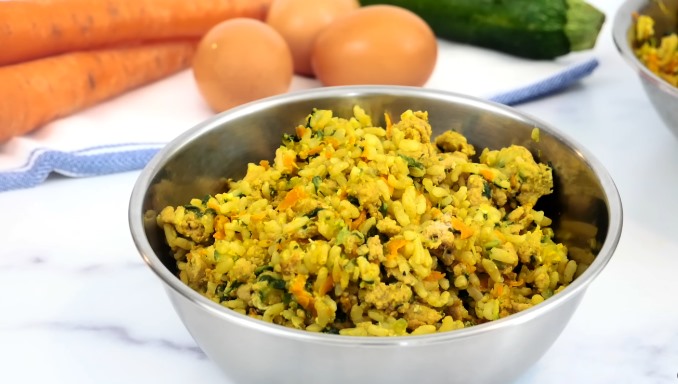
What To Feed A Sick Dog With No Appetite
What do dogs eat when they shed? When your dog is sick, it can be hard to know what to do to help them feel better. One of the most important things you can do is make sure they are eating and drinking enough. If your dog has no appetite, here are some tips on what to feed a sick dog.
1. Wet food
Wet food is often more appetizing to dogs than dry food, so it may be easier for them to eat if they are not feeling well. You can also add some warm water to the wet food to make it more appealing.
2. Small meals
If your dog is struggling to eat a full meal, try breaking it up into smaller meals throughout the day. This will help them to not feel so full and may make it easier for them to eat.
3. Soft food
If your dog is having trouble chewing, you can try feeding them soft food that is easy to eat. This includes things like boiled chicken or ground beef. You can also add some water to the food to make it softer.
4. High-calorie food
If your dog is sick, they may need more calories than usual to help them recover. You can find high-calorie dog food at most pet stores.
5. Homemade food
You can also make homemade food for your dog if they are not eating well. This can be something as simple as boiled chicken and rice. You can also add some canned pumpkin to the food, which is high in fiber and can help with digestion.
If your dog is sick, it is important to make sure they are eating and drinking enough. Try wet food, small meals, soft food, or high-calorie food if your dog has no appetite. You can also make homemade food for your dog if they are not eating well.
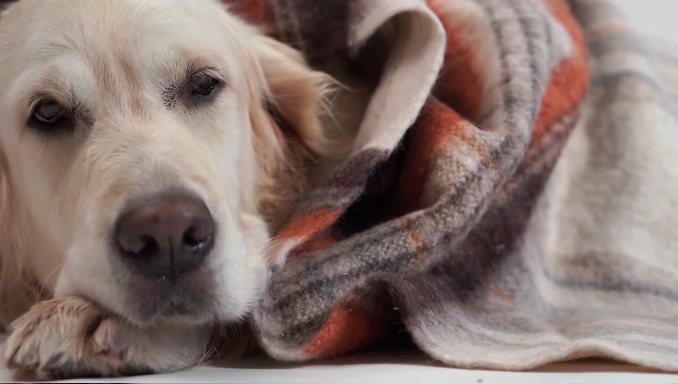
Why Dogs Eat Poop?
There are many reasons why dogs eat poop. Some dogs do it because they’re curious and want to explore everything they come across. Others do it because they’re trying to get attention or show their affection. And some do it simply because they like the taste! Regardless of the reason, it’s important to discourage this behavior so your dog doesn’t end up getting sick.
One of the most common reasons dogs eat poop is because they’re lacking certain nutrients in their diet. If your dog isn’t getting enough of the right nutrients, they may turn to eating feces as a way to supplement their diet. This can lead to health problems down the road, so it’s important to make sure your dog is getting all the nutrients they need from their food.
Another reason dogs eat poop is because they’re stressed or anxious. Some dogs may turn to eating feces as a way to cope with stress or anxiety. This can be caused by many different things, including changes in the home, separation anxiety, or even just boredom. If you think your dog may be eating poop due to stress or anxiety, talk to your veterinarian about ways to help them cope.
Finally, some dogs simply enjoy the taste of feces! While this may seem gross to us, it’s actually not that surprising when you think about it. Dogs have a very different sense of smell than we do, and they may find the scent of feces appealing. If your dog seems to enjoy eating poop, there’s not much you can do about it other than discourage the behavior and keep a close eye on them to make sure they’re not getting sick.
If you think your dog is eating poop, it’s important to talk to your veterinarian. They can help you figure out why your dog is doing it and give you advice on how to stop the behavior. In some cases, they may also recommend changing your dog’s diet or giving them supplements to correct any nutrient deficiencies. With a little help, you can get your dog to stop eating poop for good!
What To Put In Dog Food To Stop Eating Poop
If your dog is eating poop because they’re lacking certain nutrients in their diet, you may need to adjust their food. Your veterinarian can help you figure out what to put in dog food to stop eating poop. They may recommend adding supplements to your dog’s diet or changing to a food that’s higher in certain nutrients.
Some dogs eat poop because they’re stressed or anxious. If this is the case, your veterinarian may recommend giving them dog treats that help with stress or anxiety. There are also many different products on the market that claim to stop dogs from eating poop. However, it’s important to talk to your veterinarian before using any of these products, as some of them may be harmful to your dog.
If your dog is eating poop because they simply enjoy the taste, there’s not much you can do about it. You can try to discourage the behavior by scolding them or using a negative reinforcement, but it’s unlikely that you’ll be able to stop it completely. It’s important to keep an eye on your dog to make sure they’re not getting sick from eating feces.
Finally, there are a few things you can put in dog food to stop them from eating poop. One option is to add fiber to their diet. This can be done by adding canned pumpkin or another high-fiber food to their food. Another option is to feed them smaller meals more often throughout the day. This will help to keep their digestive system moving and may make them less likely to eat poop. Finally, you can try adding a supplement to their food that contains enzymes that break down feces. This can help to discourage them from eating poop. If you are concerned about your dog eating poop, talk to your veterinarian about the best option for your pet.
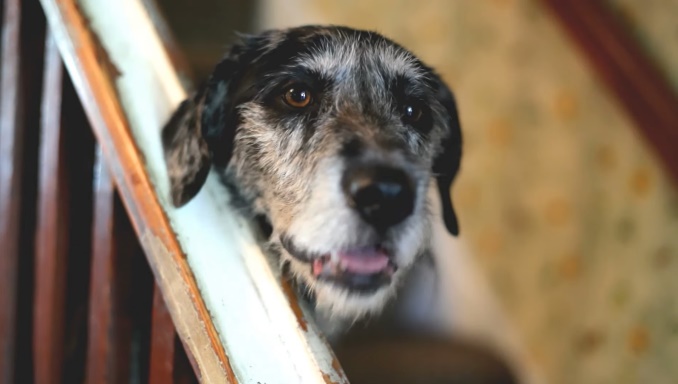
What Do Prairie Dogs Eat?
What do dogs eat with Prairie breed? Prairie dogs are a type of rodent that is native to the Great Plains region of North America. They get their name from their habitat, which is typically grassland with scattered trees and bushes.
Prairie dogs are social animals that live in colonies. These colonies can be quite large, with some containing over 10,000 prairie dogs!
Prairie dogs are herbivores, which means that they only eat plants. Their diet consists mostly of grasses, but they will also eat other types of vegetation, such as roots and leaves. In the wild, prairie dogs typically consume around 1% of their body weight in vegetation each day.
Prairie dogs are also known to eat insects, such as ants and beetles. This is thought to help them get the nutrients they need, as well as providing them with a source of protein.
In captivity, prairie dogs are typically fed a diet of hay, vegetables, and pellets. This diet gives them all the nutrients they need to stay healthy.
What Food Can Puppies Eat?
Puppies can eat a variety of different foods, but it’s important to make sure that they’re getting the right nutrients. Puppies need more protein than adult dogs, so their food should be high in protein. Good sources of protein for puppies include chicken, turkey, fish, and beef.
Puppies also need more fat than adult dogs. This is because fat provides them with energy and helps to keep their coats healthy. Good sources of fat for puppies include chicken fat, fish oil, and flaxseed oil.
Puppies need a lot of calories to grow, so their food should be high in calories. Puppies also need certain vitamins and minerals, such as calcium and phosphorus, for their bones to grow properly.
Puppies should eat small meals several times a day. As they get older, they can transition to eating two or three larger meals each day. It’s important to consult with your veterinarian about how often to feed your puppy, as well as what type of food is best for them.
How Much Should a Puppy Eat
Puppies need to eat a lot of food because they’re growing so quickly. They typically need about twice as many calories as an adult dog.
Puppies also need to eat more frequently than adult dogs. They should eat small meals several times a day. As they get older, they can transition to eating two or three larger meals each day.
It’s important to consult with your veterinarian about how much and how often to feed your puppy. They can help you determine the best feeding schedule and amount of food for your puppy based on their age, weight, and activity level.
What To Feed a 4 Week Old Puppy Without Mom
When a puppy is born, they are typically fed their mother’s milk. This provides them with the nutrients they need to grow and develop properly.
However, there are times when a puppy may need to be fed without their mother. This can happen if the mother is unable or unavailable to feed them. It can also happen if the puppies are orphaned or if they need to be bottle-fed for some other reason.
If you find yourself in this situation, don’t worry! There are many different formulas that can be used to feed a 4 week old puppy without mom. The most important thing is to make sure that the formula you choose is appropriate for their age and size.
You should also talk to your veterinarian about the best way to feed your puppy. They can provide you with specific instructions on how much formula to give them and how often they need to be fed.
When it comes to feeding a 4 week old puppy without mom, there are a few things that you need to keep in mind. The first is that you need to make sure that the food you are giving them is high in calories and nutrients. Puppies need more calories than an adult dog, so you want to make sure that they are getting enough to eat. The second thing to keep in mind is that you need to start slowly. Puppies have sensitive stomachs, so you don’t want to overwhelm them with a lot of food at once. Start by giving them a small amount of food, and then gradually increase the amount as they get used to it.
Lastly, make sure that you are giving them fresh, clean water to drink. Puppies need a lot of water, and it is important to keep them hydrated. If you follow these tips, you should have no problem feeding your 4 week old puppy without mom.
Feeding a 4 week old puppy without mom can be a challenge, but it’s definitely doable. Just make sure that you choose the right formula and follow your veterinarian’s instructions carefully. Your puppy will be just fine!
What To Feed A 2 Month Old Puppy
When it comes to feeding a 2 month old puppy, there are a few things you need to keep in mind. First of all, puppies need a lot of nutrition and calories since they are growing so quickly. This means that you will need to feed them more often than an adult dog. Puppies also need a higher quality food since their bodies are still developing. Puppies should be fed three to four times a day.
When it comes to what to feed a 2 month old puppy, you have a few options. You can either feed them puppy food, or you can feed them adult food that has been softened. If you decide to feed your puppy adult food, make sure to soften it first so that it is easy for them to digest. You can also add some water to the food to make a gruel.
Puppies should always have access to fresh water. This is especially important since puppies are more prone to dehydration than adult dogs. Make sure to check their water bowl often and refill it as needed.
In addition to food and water, puppies also need plenty of exercise. This is important for their physical and mental development. Puppies should be taken on walks or played with several times a day.
If you have any questions about what to feed a 2 month old puppy, please consult your veterinarian. They will be able to give you specific advice based on your puppy’s individual needs.
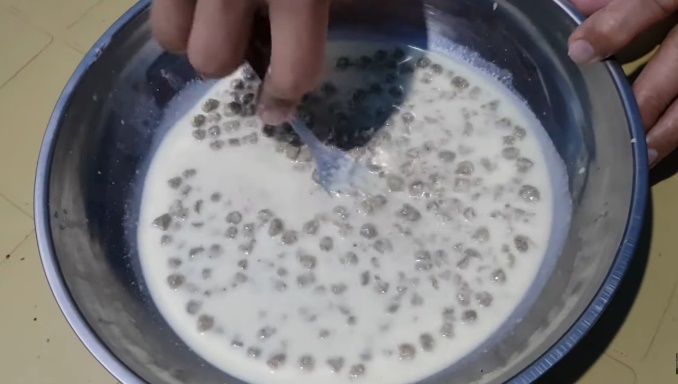
Dogs With Food Poisoning – Signs and Treatment
If you think your dog may have food poisoning, it is important to take them to the vet immediately. Dogs can get food poisoning from eating contaminated food, just like humans. The symptoms of food poisoning in dogs include vomiting, diarrhea, lethargy, and loss of appetite. If your dog is showing any of these symptoms, they need to be seen by a vet right away.
Dogs with food poisoning need to be treated depending on the severity of their symptoms. If they are only mildly ill, they may just need to be given fluids and rest. More severe cases may require hospitalization and IV fluids. In some extreme cases, dogs may even need surgery.
If you think your dog has food poisoning, the best thing you can do is to take them to the vet right away. The sooner they are seen, the better their chances of a full recovery.
FAQs about What Do Dogs Eat
What do Pomeranians eat?
Pomeranians are small dogs, so they don’t need a lot of food. A good rule of thumb is to feed them twice a day, with each meal being about 1/2 cup of food. You can feed them dry food, wet food, or a combination of both. It’s important to choose a high quality food that is appropriate for their age and activity level.
How much water should a Pomeranian drink?
Pomeranians need to drink about 2-3 cups of water per day. It’s important to make sure they always have fresh, clean water available. You can put their water bowl in a different location each day to encourage them to drink more.
What can French Bulldogs not eat?
French Bulldogs should not eat table scraps, as this can lead to obesity. They also need to avoid foods that are high in fat, such as bacon, sausage, and cheese. French Bulldogs should also avoid grapes, raisins, and chocolate, as these can be toxic to dogs.
What can Shih Tzus not eat?
Shih Tzus should not eat table scraps, as this can lead to obesity. They also need to avoid foods that are high in fat, such as bacon, sausage, and cheese. Shih Tzus should also avoid grapes, raisins, and chocolate, as these can be toxic to dogs.
Can dogs eat bones?
Dogs can eat bones, but there are some risks involved. Bones can splinter and cause internal damage, so it’s important to choose the right type of bone for your dog. Raw bones are the best option, as they are softer and less likely to splinter. You can also give your dog bones that have been cooked, but make sure they are not cooked with any seasonings or sauces.
Why dogs eat grass?
There are a few theories as to why dogs eat grass. Some people think that it is because they are lacking certain nutrients in their diet. Others believe that dogs eat grass to make themselves vomit when they have an upset stomach. It is also possible that dogs just like the taste of grass!
What is a dogs Favourite human food?
Dogs love a variety of human foods, but some of their favorites include peanut butter, cooked eggs, plain yogurt, applesauce, baby food, cheese and chicken. However, it is important to remember that certain foods can be harmful to your pup’s health and should always be avoided. Examples of these dangerous foods include chocolate, grapes, raisins, onions, garlic and avocados. Additionally, it is important to remember to always provide your pup with fresh water and a quality dog food diet. This will help ensure that your pup remains healthy and happy for many years to come!
Conclusion
Dogs are omnivorous animals and as such, they can eat a variety of things. While there are some foods that you should avoid giving your dog, there are many others that make for a healthy diet. If you’re not sure what to feed your pup, consult with your veterinarian about the best options. By providing your dog with a balanced diet, you can help ensure his health and well-being.
Above is the article “What Do Dogs Eat?”. Thanks for reading!









Every weekend i used to pay a visit this web site, for the reason that i wish for enjoyment, for the reason that this this web page conations actually nice funny material too.
An intriguing discussion is worth comment.
There’s no doubt that that you ought to publish more on this subject matter, it might not be
a taboo matter but generally folks don’t speak about these
subjects. To the next! Best wishes!!
I am truly happy to glance at this webpage posts which contains plenty
of useful data, thanks for providing these kinds
of information.
Helpful info. Fortunate me I discovered your web site accidentally, and I’m stunned why this
accident didn’t took place in advance! I bookmarked it.
Hello, Neat post. There’s a problem along with your website in web explorer,
would check this? IE still is the market leader and a huge element of other people will
miss your fantastic writing because of this problem.
Thanks for sharing your thoughts. I really appreciate your efforts and I will be waiting for your next post thanks once again.
Hi to every single one, it’s genuinely a good for me to go to
see this website, it contains priceless Information.
Hello! This post couldn’t be written any better!
Reading this post reminds me of my previous room mate! He
always kept talking about this. I will forward this page to
him. Fairly certain he will have a good read. Thank you for sharing!
Your article helped me a lot, is there any more related content? Thanks!
By selecting "Accept all cookies," you consent to Vetranch storing cookies on your device and disclosing information in accordance with our Privacy policy